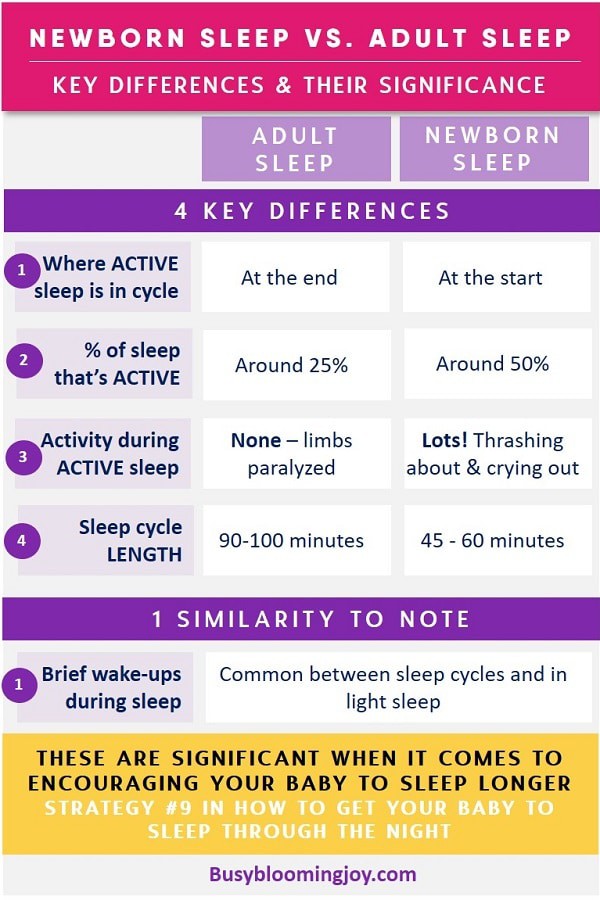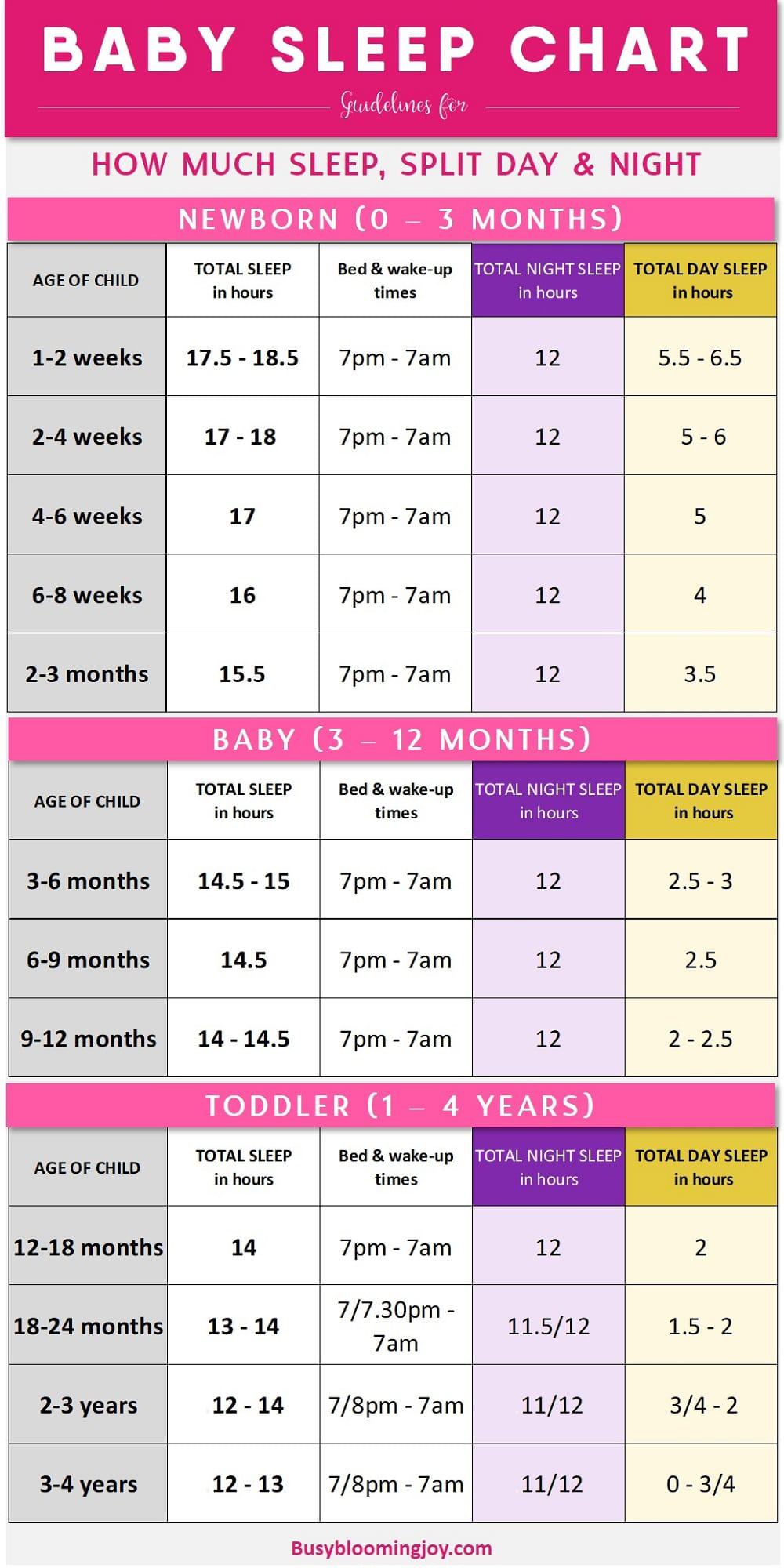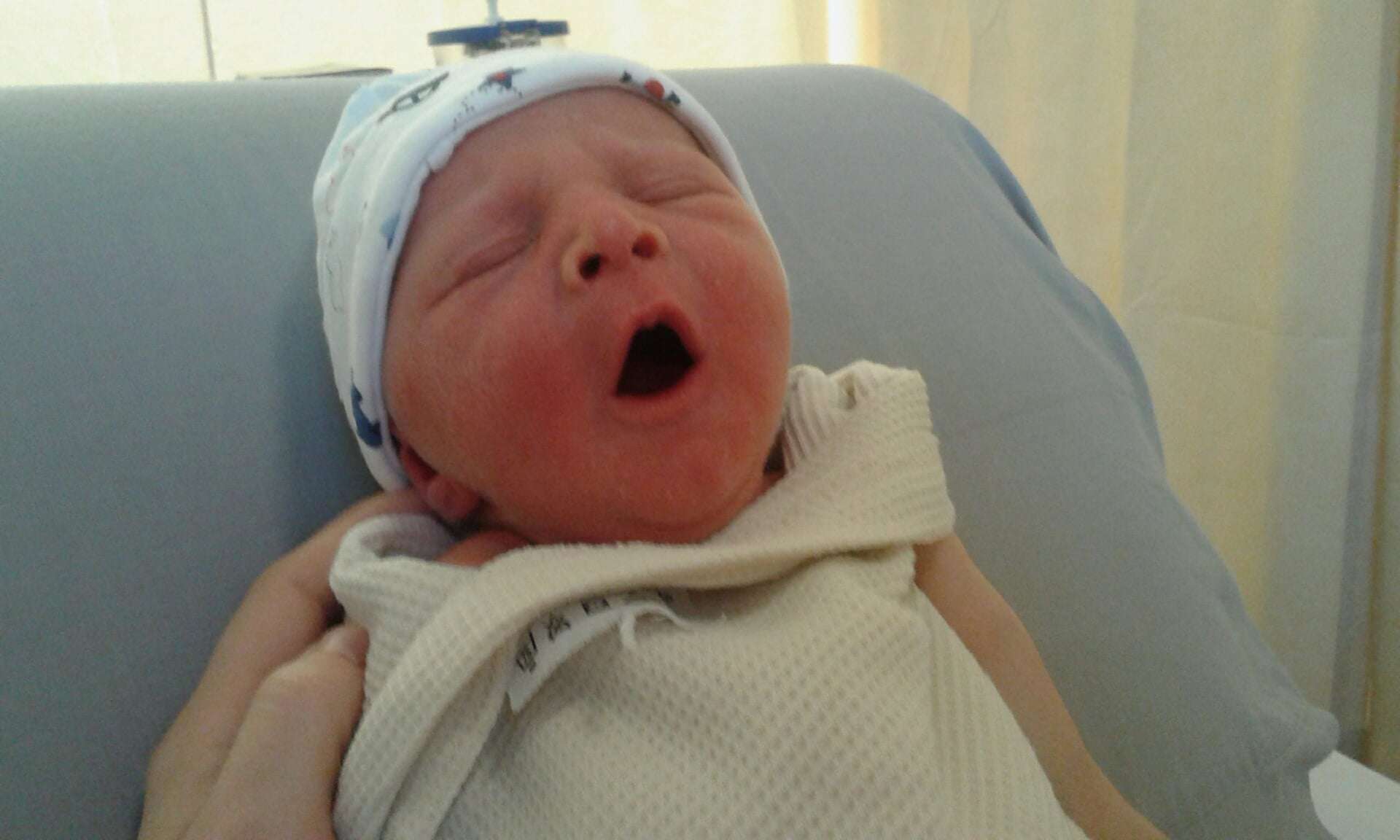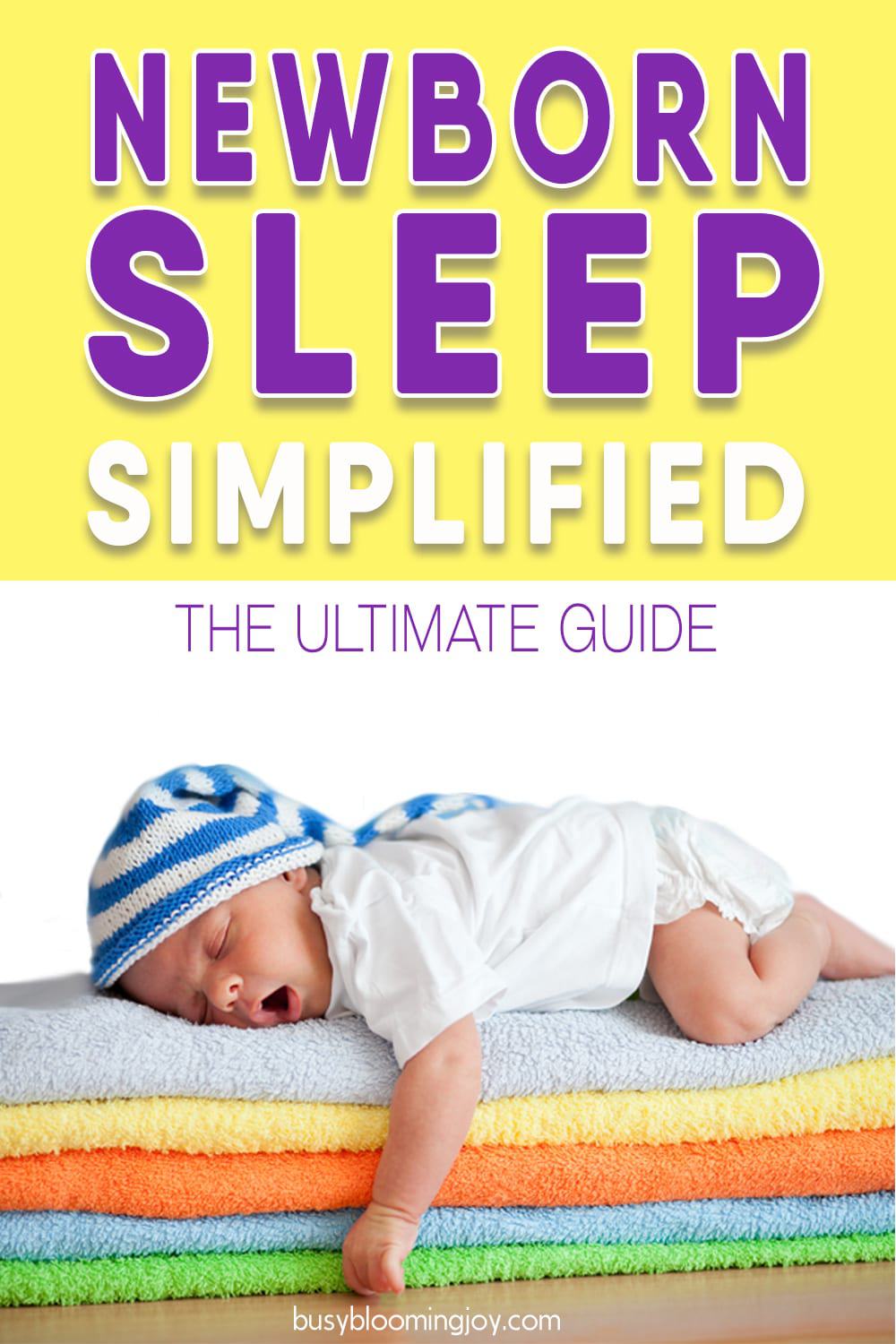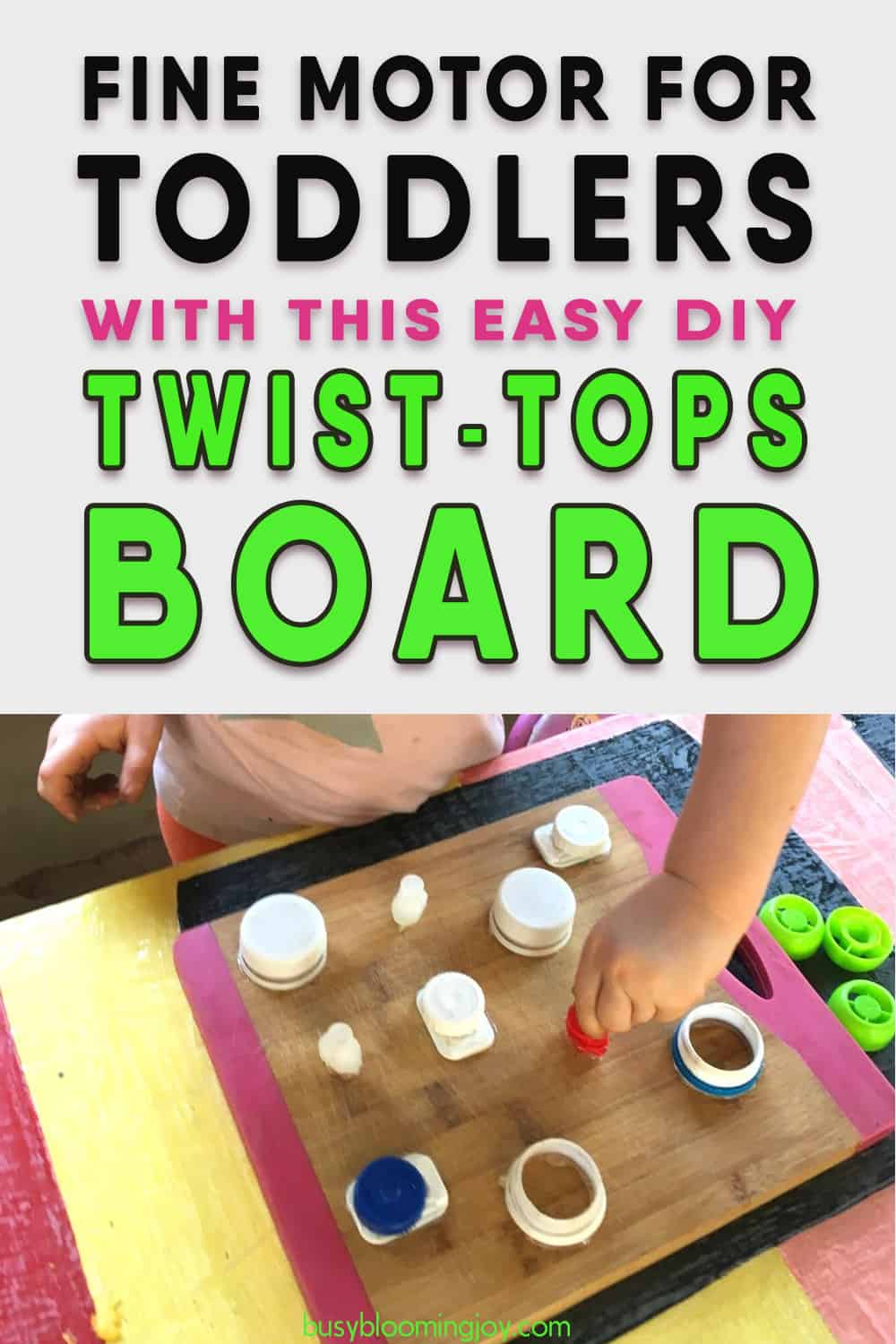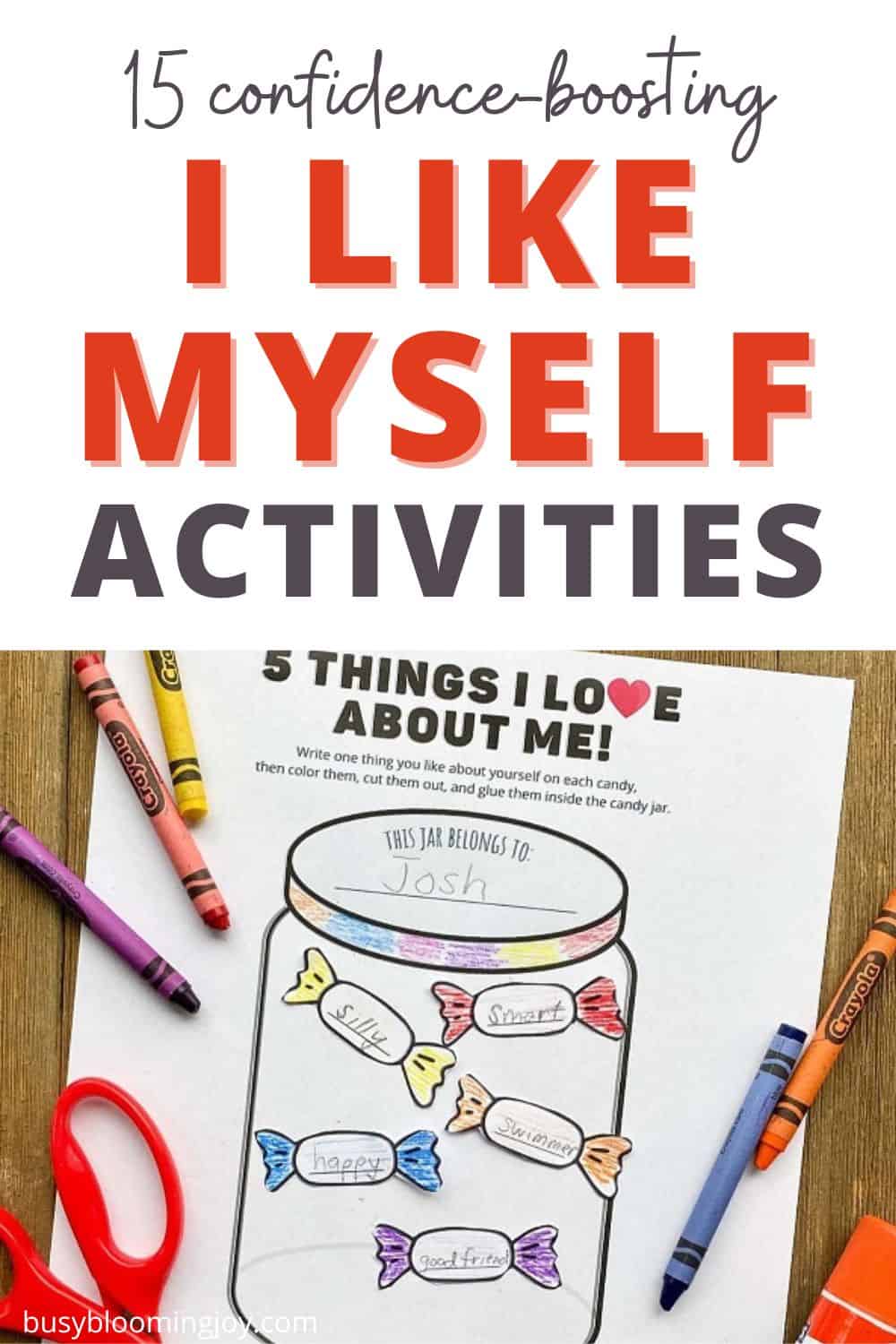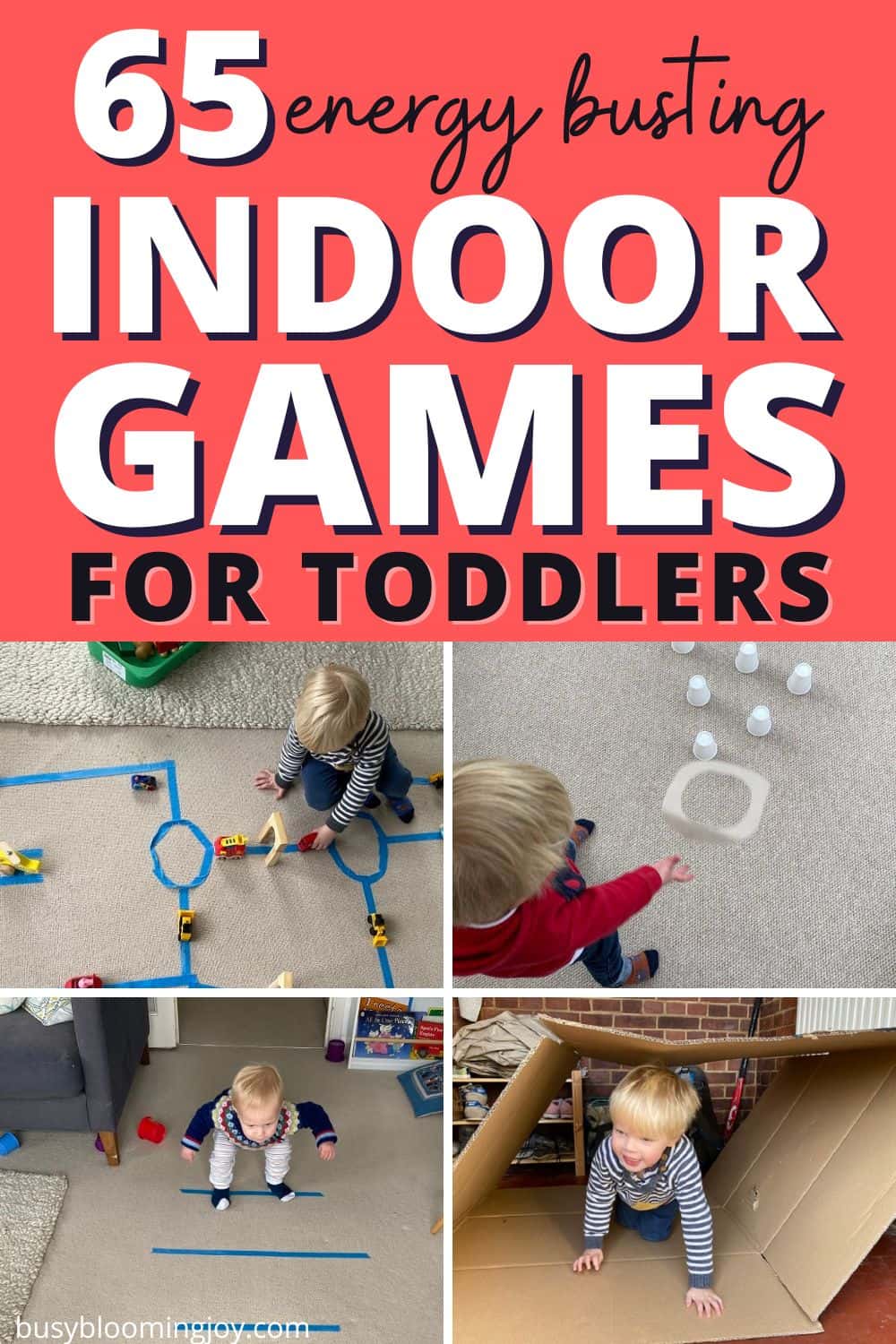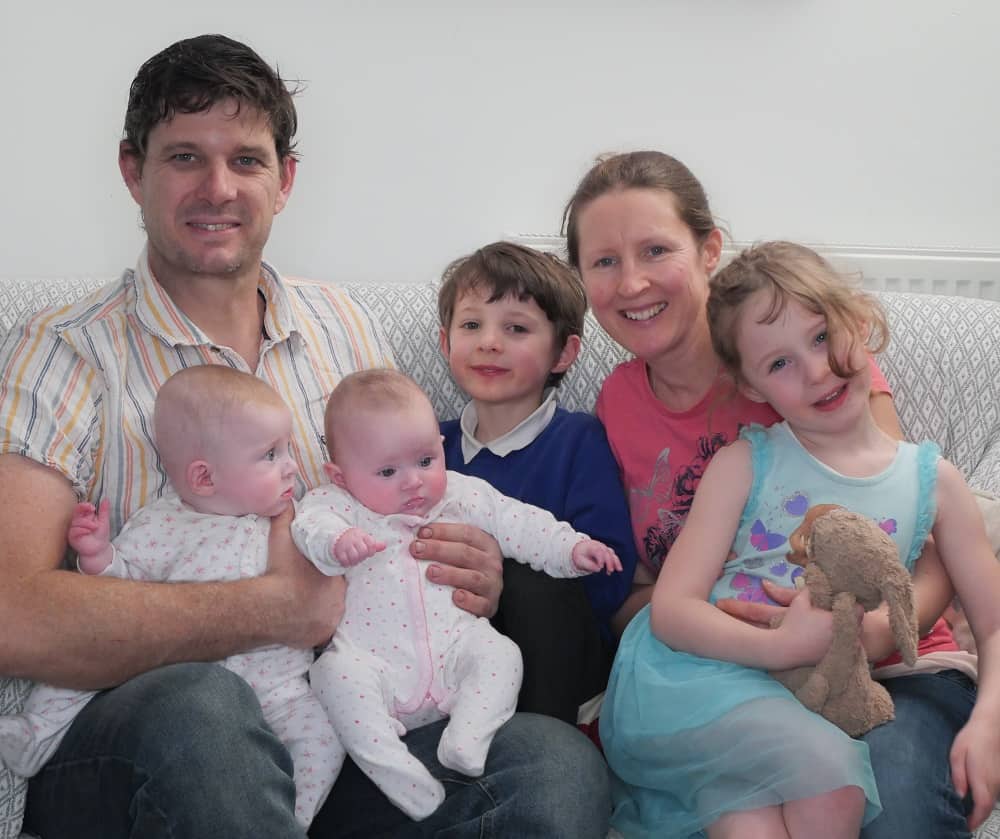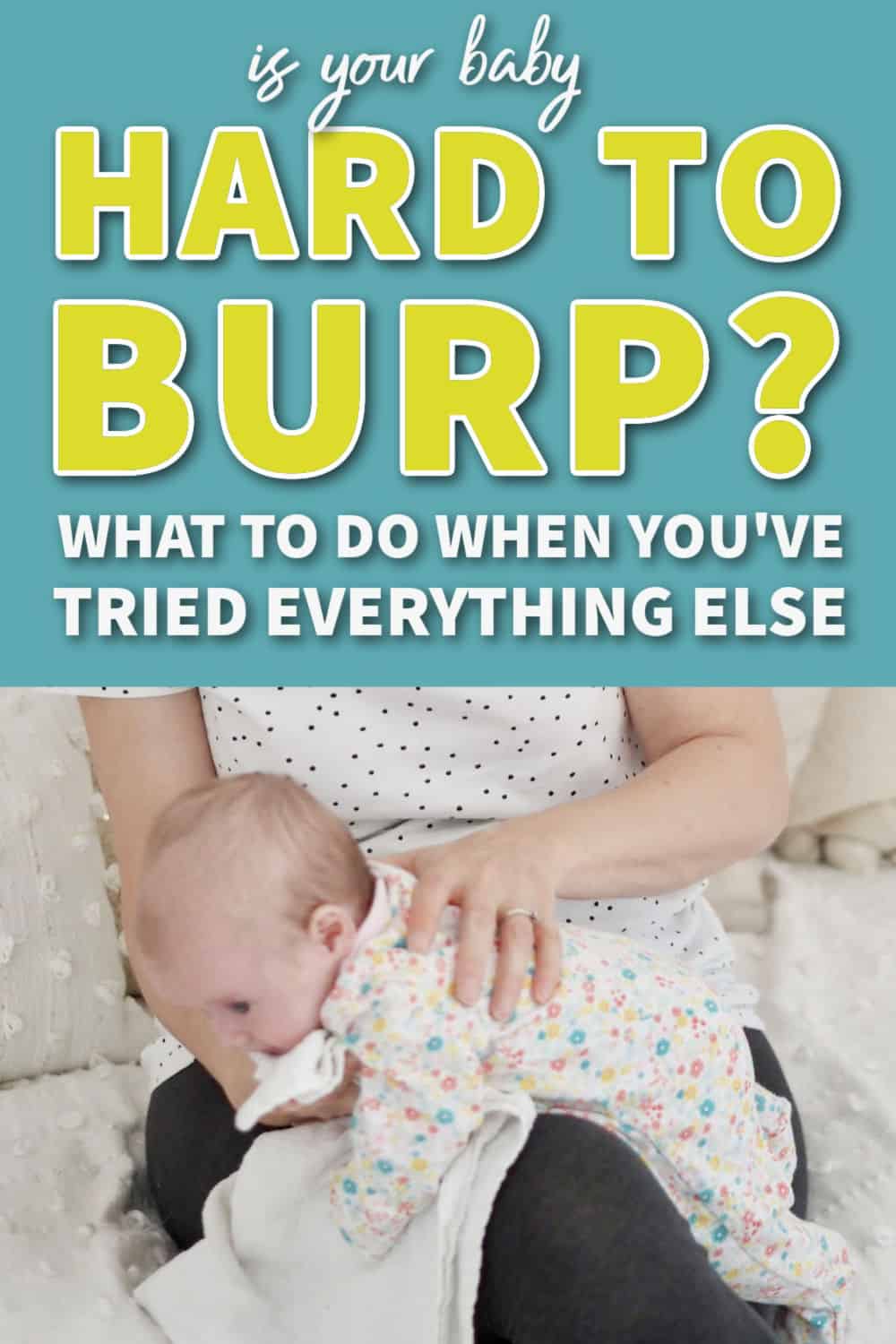Newborns sleep a lot. So how is that as a new parent, we barely get any?
Well firstly, newborn sleep patterns very different from those of adults, as you’ve probably noticed. But why and how are things worth understanding. There are some key learnings from this when it comes to helping your baby develop healthy sleep habits.
Then there’s the million dollar question, “When do babies sleep through the night?’ That has no doubt has popped into your head several times if you have a newborn.
In addition, you’re probably wondering “How long should my baby sleep?”, “Is my baby sleeping too much?”, “Should I start a sleep routine or schedule?”
Then there’s the worry about safe sleep and co-sleeping or bedsharing…
These are all questions covered in this post. Let this be your guide to ease you into parenthood when it comes to everything newborn sleep!
Table of Contents
TogglePart 1: Newborn sleep patterns
Newborn sleep the first week
Newborns sleep a lot in the first week, pretty much only waking to feed before drifting off back to sleep. Whether it’s day or night they’re going to be sleeping! But in short bouts of anything from 20 minutes to 4 hours.
You can read more about the importance of feeding frequently in the early days here: Your Essential Guide To Newborn Breastfeeding: A Must Read To Start It Right
So it’s perfectly normal and desirable that your baby wakes frequently to feed.
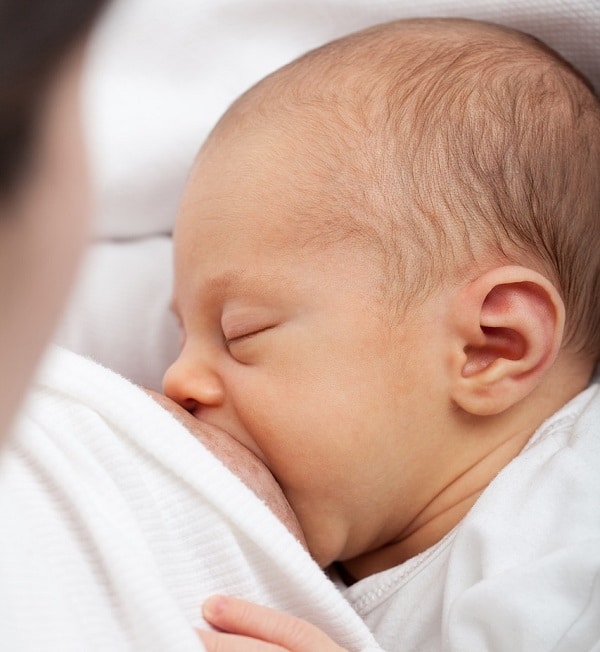
If you are one of the (lucky) few whose newborn sleeps 3+ hours from the get-go, you may have to wake your baby up to feed them. If you’re unsure how long you should let your newborn sleep without eating, it’s best to check with your pediatrician.
Newborn sleep patterns won’t synch with day and night early on
The adult body clock, or circadian rhythm, governs the times that we naturally want to sleep. This is largely influenced by light intensity since light inhibits the sleep-inducing hormone, melatonin.
Coming from a place of zero light, newborn sleep patterns won’t reflect day and night in the early days
I.e. newborns don’t know to spend more time awake in the day than at night!
By about 3 months, with more exposure to daylight, your baby will get the hang of days and nights. Luckily there are plenty of easy ways to speed it up (as in, in a few days).
For a step-by-step guide on transitioning your baby from sleeping all day to sleeping all night (and ONLY waking to feed, not to party or play!) check out:
Related post: Newborn Sleeps All day? 10 fail-safe tactics to fix day night confusion fast
Understanding newborn sleep cycles and stages
During a sleep cycle, both adults and babies cycle between REM sleep, the lightest sleep stage termed ‘active’ sleep in babies, and progressively deeper stages of sleep.
But there are several differences worth noting…
- Newborn sleep starts in ‘active’ sleep (the equivalent to REM in adults) whereas the adult sleep cycle ends in REM
- Newborns are in active sleep 50% of the time (vs. 25% in adults) and only spend 20-30% in deep or ‘quiet’ sleep
- When in active sleep, newborns are mentally and physically active while adults are inactive
- Newborn sleep cycles are shorter
These are summarised here:
As noted in the yellow box, these differences are significant when it comes to developing healthy sleep habits and getting baby to sleep longer stretches. We will get onto this shortly.
More detail on newborn sleep cycles and patterns here: Newborn sleep patterns: decoded and demystified for healthy sleep habits
Newborns often look very restless when asleep
Adults are physically INACTIVE in REM sleep (when dreaming happens) due to the neurological barrier that temporarily paralyzes the limbs, thought to prevent dreams being acted out.
As per #3, when newborns are in ‘active’ sleep, the equivalent of REM sleep in adults, they are both mentally and physically active.
In newborns, the temporary neurological barrier has not developed so they move a lot!
They twitch, wiggle, stretch, and thrash. They may frown or smile, or launch into a burst of sucking movements. They may vocalize too (Source)
The little time newborns spend in ‘Quiet’ sleep is a survival strategy
While adults spend a lot of time in ‘deep’ sleep, newborns spend very little time in the equivalent ‘quiet’ sleep. Since humans are born so developmentally immature, it’s crucial that the brain detects major threats quickly. It does this by staying active for a lot of the sleep cycle (in ‘active’ sleep, the equivalent of adult REM sleep).
Oxygen deprivation is a particular concern since newborns have an immature hypoxic ventilatory response (HVR). This means their body is not as adept at dealing with low oxygen levels as adults are. Their best defense is to wake up quickly, hence more ‘active’ sleep and little quiet’ sleep.
It’s on this basis that many of the safe sleep regulations have been built: much of the advice tries to ensure baby has an adequate oxygen supply (sleeping on the back, not the front, no blankets in bed, use a firm mattress, smoke-free environment etc).
More on safe sleep later.
In both babies and adults brief wake-ups are common
Again, this is to allow the brain to ‘check-in’ for potential threats. As adults generally we won’t even notice – in this semi-conscious state, if nothing is detected, back to sleep we go.
Disturbances such as loud noises or the need for the drink, may wake us up fully. We can then act to answer these needs.
In the same way, there are many internal discomforts that help protect a newborn.
The most important ones are hunger, being too hot or too cold and illness. Excess gas, reflux and teething are other common discomforts that will wake them or keep them awake on waking.
External disturbances, such as bright light, loud noises and other sudden changes to the environment may initiate the startle or Moro Reflex and wake baby up. From this, there are a few important learnings when it comes to the ideal sleep environment for newborns:
- dark/pitch black to avoid light disturbance
- background noise/white noise to regulate noise disturbance
- baby should be swaddled to avoid the Moro Reflex waking baby up
There’s a lot of potential for your newborn to mislead you when it comes to sleep!
Babies may look restless a lot of the time and fool us into thinking they’re going to wake up when they’re not. They may kick about, cry out and even open their eyes and fool us into thinking that they’re awake. But they’re not!
Babies may also wake up partially and briefly, during active sleep and, most commonly, in between sleep cycles. If still tired and not hungry or in any discomfort they should go back to sleep.
They may also struggle with the transition between active (light) sleep and quiet (deep) sleep and appear to be crying in their sleep.
‘Pausing’ is key to give baby the chance to settle
In order to encourage your baby to develop healthy sleep habits, ‘pause’ before responding. See if baby will settle back to sleep. Just wait a few minutes.
In this way, you are encouraging your baby to learn to ‘self-soothe’. This is an important step in getting baby to sleep through the night.
In fact, this is really the only baby sleep tip you need!
When I asked 20 moms for their insights on the quest to get their babies to sleep through the night, this tip was the one I kept hearing.
By gently ‘training’ your baby to self-soothe, there will be no need to go down the route of cry-it-out sleep training later. I speak from experience…
For further insight into newborn sleep and the importance of the ‘pause’ in order to develop healthy sleep habits, check out this post here:
And for the full baby sleep stories from those 20 moms, check these out:
When do babies sleep through the night? 20 normal moms share their baby sleep stories
Newborn sleep patterns & cycles start to mature at 3-4 months
At this point, newborn sleep patterns become more like those of an adult. Unfortunately, this development often brings the first major sleep regression as baby is more easily disturbed.
So you may find your baby wakes more often at night and takes shorter naps at this 3-4 month mark.
If your baby is used to being nursed or rocked to sleep (i.e. they have a nursing or rocking to sleep ‘association’), it’s likely you will have to aid them to sleep again.
For this reason, hold off on any kind of sleep aid (e.g. rocking or feeding to sleep) early on if you can. Your baby will be able to settle back to sleep on waking (because you’re practicing the ‘pause’) so you may not even notice this sleep regression. (Hint, I didn’t!)
Part 2: Newborns sleep a lot – but how much?
Newborns sleep a lot, older babies and toddlers also sleep a lot. The question is how much? How much sleep is necessary for healthy growth and development? Can babies sleep too much?
Unfortunately, there isn’t an easy answer or a magic number. You guessed it, all babies need different amounts of sleep, just like adults do.
The official guidelines
For this reason, The American Academy of Sleep Medicine only offers sleep guidelines for babies 4 months or older, as follows:
- Infants 4–12 months: 12–16 hours
- Children 1–2 years: 11–14 hours
The unofficial guidelines
However, with a bit of digging from several other resources, the general consensus seems to be that the AVERAGE newborn baby needs the following amount of sleep:
- 0-2 months: 16-20 hours a day
- 3 months old: 15-18 hours
- 4 months old: 14-15 hours
A word of caution on these figures
They are AVERAGES and need to be treated as a GUIDELINE ONLY If your newborn sleeps wildly more or less than these figures it doesn’t necessarily mean there’s anything to worry about.
Research has tried to establish baby sleep needs
There have been several studies worldwide that have tried to assess how much sleep newborns need. The overriding issue is in error in data collection/reporting, since most of these studies have relied on the memory of parents for figures. Then there are also cultural differences and other external factors to consider.
This article from Parenting Science investigates reported newborn and baby sleep times in depth and noted a huge variation in the times that babies sleep. In a further article, the same author reported:
“In the first few days, the average newborn sleeps between 16-18 hours a day (Iglowstein et al 2002). By four weeks, newborn sleep averages about 14 hours. But the range is considerable. Some four-week-old babies sleep as little as 9 out of 24 hours. Others sleep for 19 hours a day (Iglowstein et al 2002).” Source.
Such is this huge variability between newborns, The American Academy of Sleep Medicine does not offer any guidelines on sleep requirements for babies under 4 months. For older babies, it recommends the following:
- Infants 4–12 months: 12–16 hours
- Children 1–2 years: 11–14 hours
However, if you’re keen for some guidelines on baby sleep needs (I was!), including how much sleep in the day, awake times and number of naps, here’s something a little bit more informative (remember this is a guide…don’t live or die by it!)
For more details on baby sleep needs, including how many day naps and awake times check out the full post here: Baffled by how much sleep baby needs? Baby sleep chart to the rescue!
Reading tiredness cues to ensure your newborn is sleeping enough
The best guideline for determining whether or not your newborn is sleeping enough is to observe their behavior.
Yawning is one of many signs of tiredness. Tiny babies may also:
- Stare vacantly
- Avoid eye contact
- Move jerkily
- Frown
- Clench fist
- Fuss and cry
- Become very still
While older babies may also:
- Rub eyes and ears
- Become clingy
- Lose interest in toys
- Suck fingers
- Turn head away from stimulation
Looking for these tiredness cues and allowing your baby to sleep when tired and BEFORE he or she is overtired is key. Trying to settle an overtired baby is a challenge!
Small babies cannot stay awake for very long at all! 20-40 minutes at a time maximum in the early days and weeks. Look for signs of tiredness and put baby to sleep before becoming overtired
For guidelines on how long babies are able to stay awake before becoming cranky and difficult to settle, it’s all there in the baby sleep chart post:
Related posts: Baffled by how much sleep baby needs? Baby sleep chart to the rescue!
Worried that your newborn is sleeping too much?
As long as your baby is feeding frequently and putting on weight, sleeping more than average can only be a good thing!
What may be of concern, is if you see a sudden change in your newborn’s sleeping pattern. For example, sleeping a lot more from one day to the next could be a sign of illness or infection. If you are following any sort of sleep and feeding routine and/or are keeping track of your baby’s sleep pattern by using a baby app of some sort, this is easy to keep track of.
Seek medical professional help if you have any concerns.
Wondering how long a baby should sleep without feeding?
In the early days when your newborn is still recovering their birthweight, the advice is to feed at least every 3 hours. So if your newborn is asleep when 3 hours have passed, wake that baby up!
When birthweight is recovered and baby showing healthy growth, you should be able to let your baby sleep longer at night. Check with a medical professional if you’re unsure.
Even at this point though, wake baby after 3 hours IN THE DAY. This ensures longer stretches of sleep will be at night.
Related post: Your Essential Guide To Newborn Breastfeeding: A Must Read To Start It Right
Part 3: When do babies sleep through the night?
This is one question every new parent is keen to know the answer to from about day…. 2? The sleep deprivation that comes with a newborn baby is really quite something isn’t it?!
When my babies slept through the night
Both my babies slept an 8-hour stretch by 3 months. I definitely consider that as ‘sleeping through the night’ since I can get a decent sleep, in theory at least. (You can read about the tactics I used here: How to get your baby to sleep through the night: 10 steps for an awesome nights sleep, no cry-it-out)
What others have to say
I also did some digging on what you should expect and what the so-called experts say. There’s a lot of variation.
I also asked 20 moms for their baby sleep stories: when their babies slept through the night and what tactics they used that helped, if any. There’s also a lot of variation.
What should give you hope with is that, as a mom or dad, you absolutely CAN influence when your baby sleeps through. You can read about this here:
When do babies sleep through the night? 20 baby stories shared by real-life moms
For the specific tips and strategies that moms believed help their baby sleep through the night, you can find these in part 2:
Part 4: Newborn sleep schedules
A sleep routine or schedule has benefits to both baby, mother and the whole family.
It’s all too easy to lose track of previous nap times and keep baby awake too long, resulting in an overtired baby that’s difficult to settle. With regular naps and sleep times babies should not get overtired, settle easily and quickly and sleep well. So a newborn sleep and feeding schedule can aid the development of healthy sleep habits in your newborn.
There are benefits for a busy, tired mother too. Having a bit more structure to the day can make running errands and the household chores a lot more manageable. You never know, you might even manage a bit of time to yourself!

A schedule normally offers specific timings for sleep and feeds
Just like anything else ‘baby’, a sleep schedule must be looked at as a ‘guideline’ to be adjusted as dictated by your babies needs. Growth spurts and other developmental milestones can be a major interrupter…
Before starting a feed and sleep schedule, it’s important that your newborn has regained birthweight and is awake and alert for short periods of the day, i.e. not just sleeping all day.
Some example newborn sleep schedules
You can find the schedules I used when my babies were small (2 weeks to 3 months) here: Starting A Newborn Sleep & Feeding Schedule That You And Your Baby Will Love – The Ultimate Guide
Both my babies were happy and contented in the day, settled well for their naps and were sleeping through the night by 3 months using these newborn schedules. They also allowed a little ‘me-time’!
Part 5: Newborn sleep safety
What is SIDS or cot death?
SIDS, (sudden infant death syndrome) otherwise known as cot death, is the sudden and unexplained death of an otherwise healthy infant. Despite a lot of research, it’s not fully understood. It’s thought to be related to the inability to react sufficiently to environmental stress, such as cigarette smoke or a breathing obstruction.
As mentioned earlier, newborns have an immature hypoxic ventilatory response (HVR) which means they are not as good at coping with low oxygen levels, versus adults. As a result, newborns spend a lot of time in ‘active’ sleep giving them a better chance of detecting a drop in oxygen levels and wake up quickly.
So many of these guidelines ensure your newborn has an adequate oxygen supply (for example, sleeping on the front rather than the back, firm mattress, no toys in cot etc).
Newborn sleep positions
In the 1960s to 1980s, the recommended newborn sleep position was on their front. This was thought to reduce the chance of a baby choking. However, research demonstrated that the chance of SIDS was actually higher for a front lying sleep position.
‘Back to sleep’ the safest newborn sleep position
In 1992 the American Association of Pediatrics issued guidelines on sleeping positions for babies. It recommended that babies should sleep on their back or side. In 1996 this was then amended to say that baby was safest when sleeping on the back, in the ‘Back To Sleep campaign’.
Since this recommendation, the incidence of SIDS has dropped by 50%.
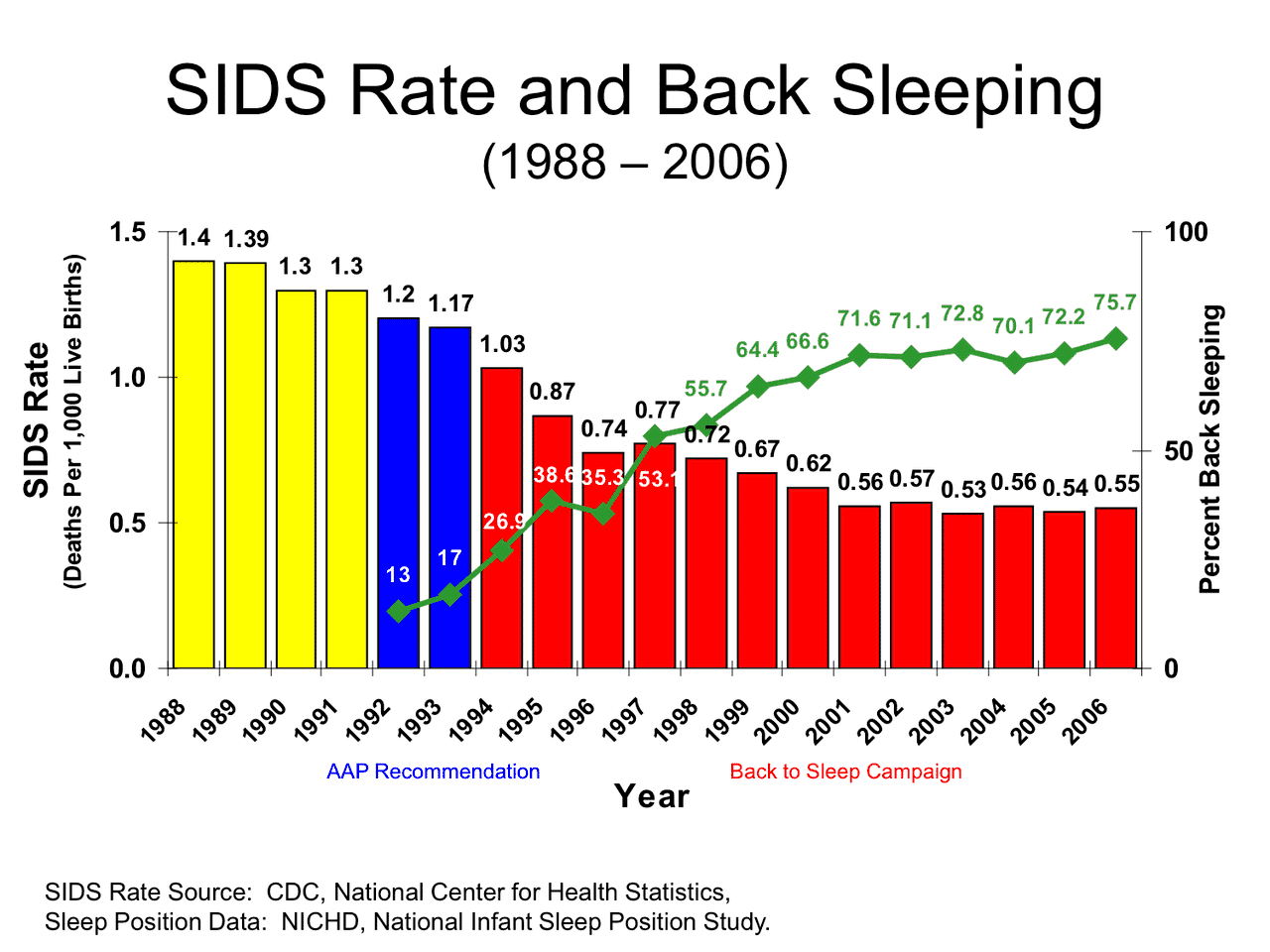
Other do’s and don’ts to reduce the risk of SIDS
Certain other factors have been linked to an increased incidence of SIDS. In addition to the ‘Back To Sleep’ recommendation, there are a whole host of guidelines that make up the ‘Safe To Sleep’ campaign.
In brief it recommends:
Avoid the chance of a breathing obstruction:
- place baby to sleep on their back to sleep
- position baby with their feet at the base of their cot – so they cannot wriggle down and under the blankets
- no extra blankets, soft toys in the cot with baby
- no bumper lining cot
- use a firm mattress, no pillow
- keep baby’s head uncovered, blanket coming no higher than shoulders
Keep baby close by until the age of 6 months:
- have your baby sleep at night in the room with you
- in the day move your baby into the same room as you for naps
Avoid your baby overheating:
- keep room temperature 16 to 20 degrees if possible when baby is sleeping
- don’t put a hat on baby when sleeping
- check baby is not too hot or cold – touch the back of baby’s neck or their tummy for sweatiness or clamminess (it’s normal for hands and feed to feel cold) – and adjust clothing as necessary
Avoid exposure to cigarette smoke:
- don’t smoke during pregnancy or let anyone smoke in the room with you when pregnant
- don’t smoke in the same room as your baby
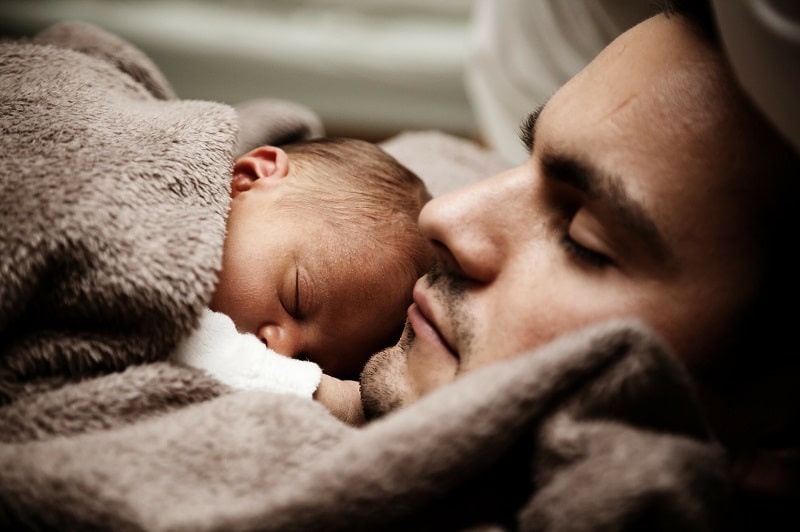
Do not bedshare:
- have baby sleep in a cot next to your bed, but not in the bed with you
- don’t sleep on the sofa with your baby – this increases the risk of SIDS by 50 times.
This one can be especially difficult to avoid, since it’s all to easy to fall asleep while feeding your baby in bed. In addition, many parents chose to sleep with their newborn and so there are now a few guidelines on minimizing the risk of bedsharing/co-sleeping.
Safe co-sleeping or bedsharing
The advice if you have baby in the bed with you is to:
- keep any loose blankets away from baby
- don’t let baby sleep on your pillow
- sleep them on their back
- avoid pets or other kids in the bed
All of the above avoid oxygen deprivation through a breathing obstruction and overheating.
The other one of course is to avoid baby falling out of bed or getting wedged against the wall.
Bedsharing or co-sleeping is an absolute no if your baby is very tiny (under 2.5kgs) and either parent smokes. It’s also a no if you’re very tired or have been drinking heavily (more chance to move about and obstruct baby’s breathing inadvertently while sleeping).
More on minimizing the risks of co-sleeping here.
For further safe sleep advice, check out this article.
In summary
Hopefully, that has filled in a few gaps when it comes to understanding newborn sleep!
In brief:
#1 – newborns sleep a lot and very differently from adults. Their sleep cycles and patterns can be a little misleading with lots of restless active sleep and brief wake-ups (both which act as crucial survival mechanisms). Check baby is awake before disturbing…
More on sleep patterns here:
#2 When it comes to how much sleep your newborn needs, the most important thing is that your baby is well rested. I.e. not showing too many signs of tiredness and fussiness while awake.
Baby sleep needs guidelines here:
Baffled by how much sleep baby needs? Baby sleep chart to the rescue!
#3 Sleeping through the night can happen by 3 months
Wondering when it might happen and what you can do to encourage it:
How to get your baby to sleep through the night: 10 steps for an awesome nights sleep, no cry-it-out
When do babies sleep through the night? 20 normal moms share their baby sleep stories
#4 You may want to try a sleep schedule as long as baby is showing healthy weight gain.
Like the idea of a sleep and feeding schedule?
Starting A Newborn Sleep & Feeding Schedule That You And Your Baby Will Love – The Ultimate Guide
#5 Finally, there are guidelines when it comes to safe sleep – try and stick to these if possible!


